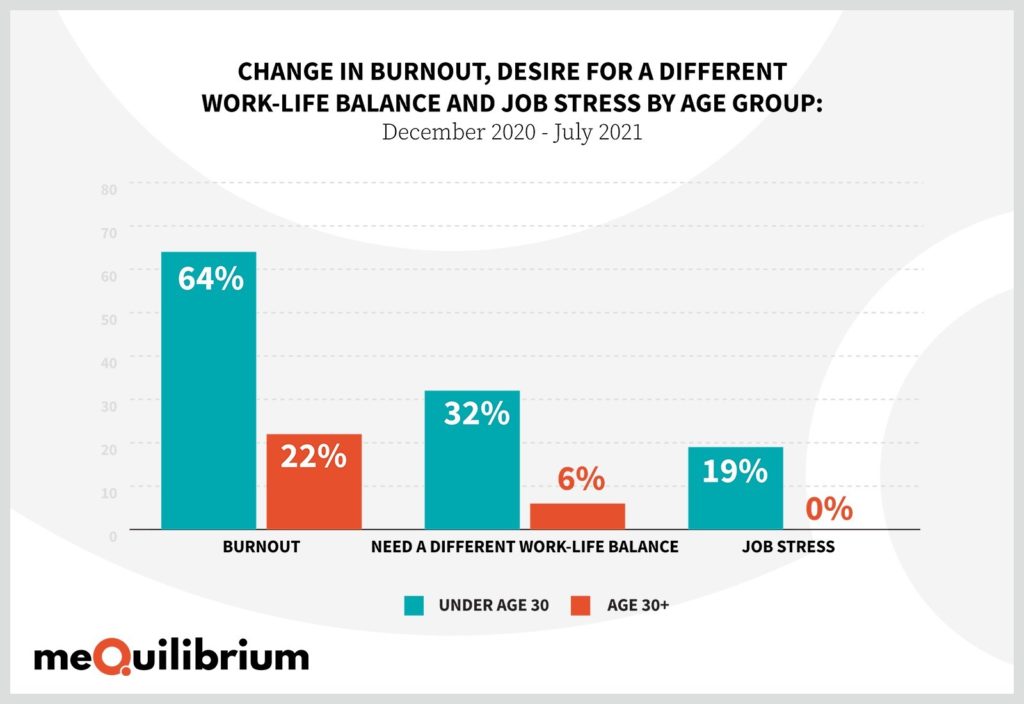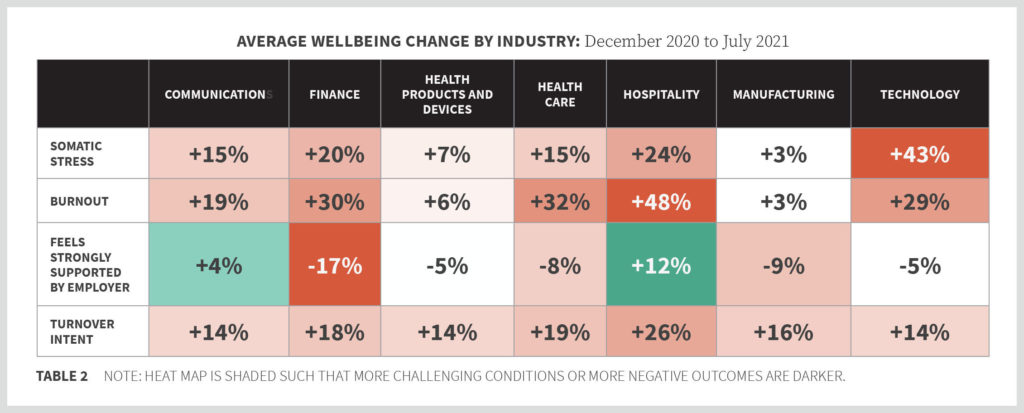Employee wellbeing, particularly amongst younger workers, continues to be under threat 18 months into the pandemic, confirmed a new study.
The latest meQuilibrium study revealed a 64% burnout risk increase for younger workers, which is nearly three times the increase for employees over 30 years of age (22%). The increase in burnout symptoms is especially high amongst managers (+54%), hospitality (+48%), health care (+32%) and finance (+30%) industry workers.
When it comes to gender differences, meQuilibrium found that men and women are experiencing similar rates of increase in burnout (+24% in women and +25% in men); However, men’s somatic stress levels are rising at a faster rate than women’s (+9% for men compared to +3% for women).
“Employee wellbeing continues to be under threat 18 months into the pandemic,” stated Brad Smith, Chief Science Officer of meQuilibrium. “Our data shows that workers continue to feel the cumulative mental health impacts of the crisis in the form of increased stress symptoms, burnout and diminished motivation. We need to take action now to protect employee wellbeing before the clock runs out.”

STRONG EMPLOYER SUPPORT VITAL
No matter what job title, gender or industry, a key factor in wellbeing risk is employer support. Employees who felt strongly supported by their employers, however, reported the highest levels of wellbeing and were less likely to report turnover intent.
That said, the new data shows a noteworthy downturn in the extent to which employees felt well-supported by their employers. Just six months ago, 78% of employees felt well-supported, dropping down to 71% today. While the data uncovered a broad-based drop in employee perceptions of strong employer support, the drop was precipitously larger (+20%) amongst managers than individual contributors.
Burnout symptoms amongst employees who had poor employer support were twice as high as those who felt protected. In contrast, employees who felt strongly supported by their employer were:
- 91% more engaged with the company’s mission and vision.
- 66% more connected to their job.
- 52% less likely to be considering quitting their job.
- 27% less worried about balancing work and family.

SELF-CARE & RESILIENCE BUILDING
Managers and individual contributors who take an active part in self-care and resilience-building have better outcomes than those who do not. While the least engaged employees reported increases of 36% in somatic stress, there was no increase in somatic stress symptoms among the most engaged members who participated in digital resilience coaching and self-care.
“Employers who continue to place a premium on employee wellbeing and performance can moderate the negative effects of the pandemic on their people before they become overwhelmed,” explained Jan Bruce, CEO and co-founder, meQuilibrium. “Together with the increase noted in manager burnout, the finding that managers feel less well supported strongly underscores the importance of companies making an extra effort to care for their managers.”
The full meQuilibrium study can be found here.
The main drivers of the Great Resignation are burnout, and lack of being valued and cared for by employers, confirmed another new study. Click here to read more.







































